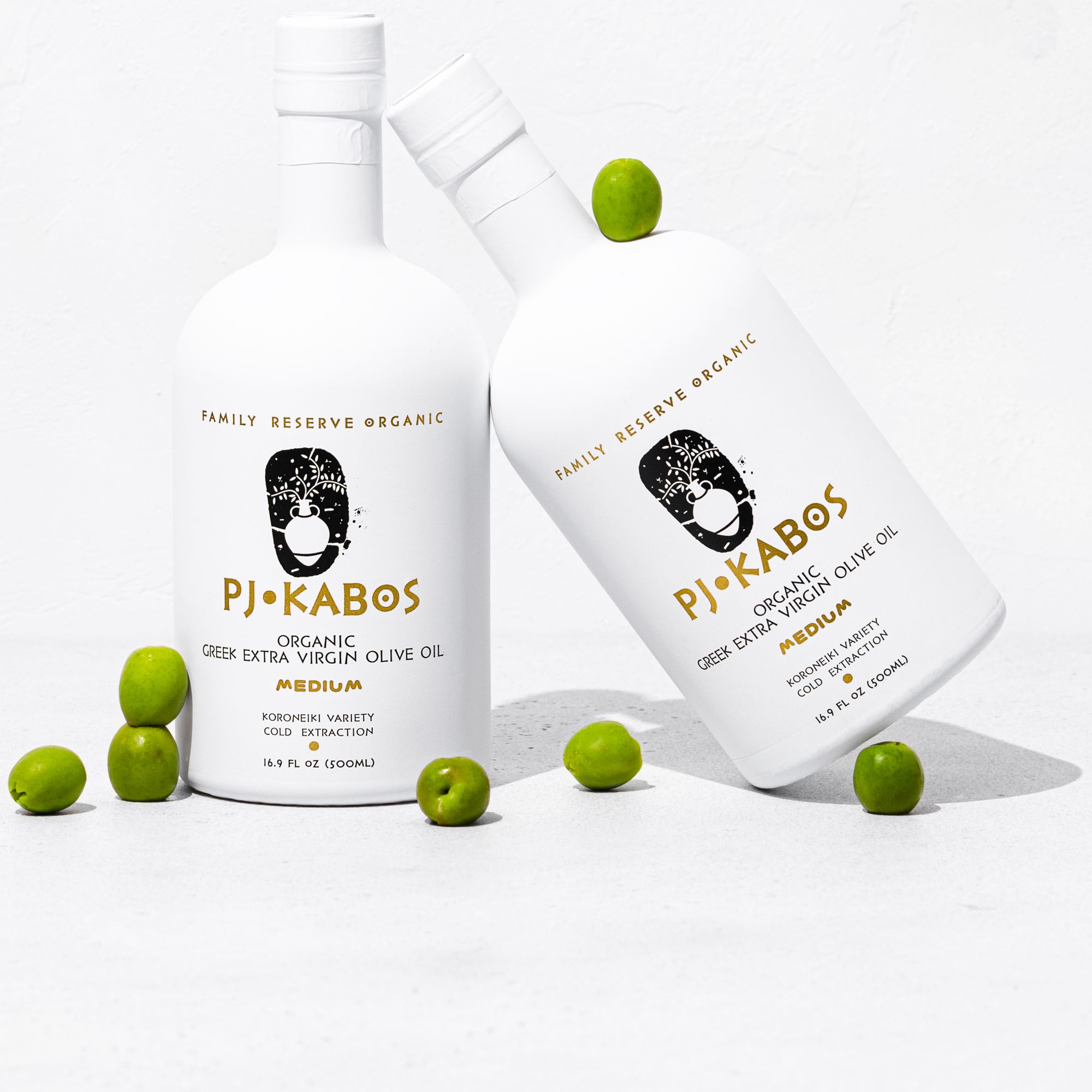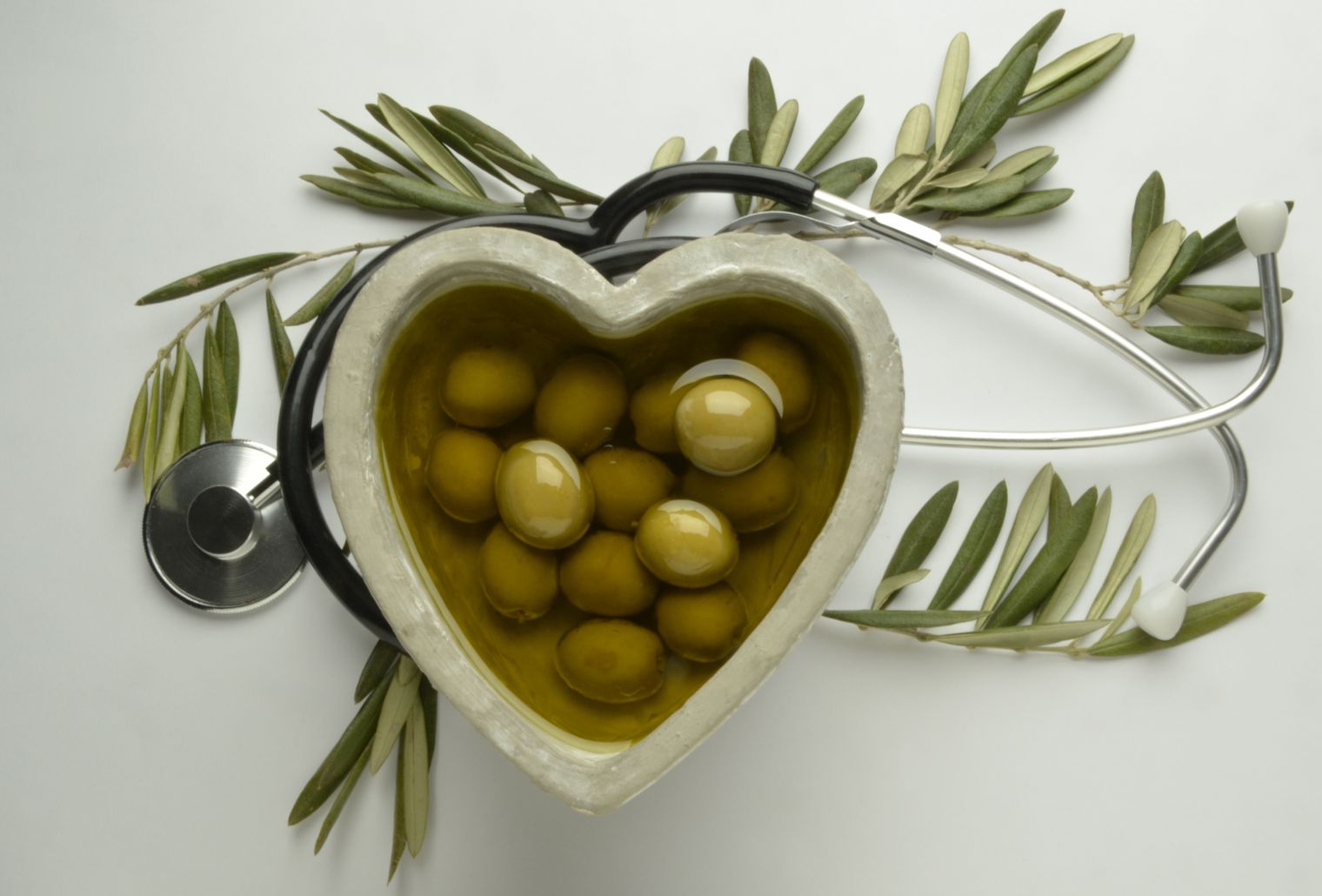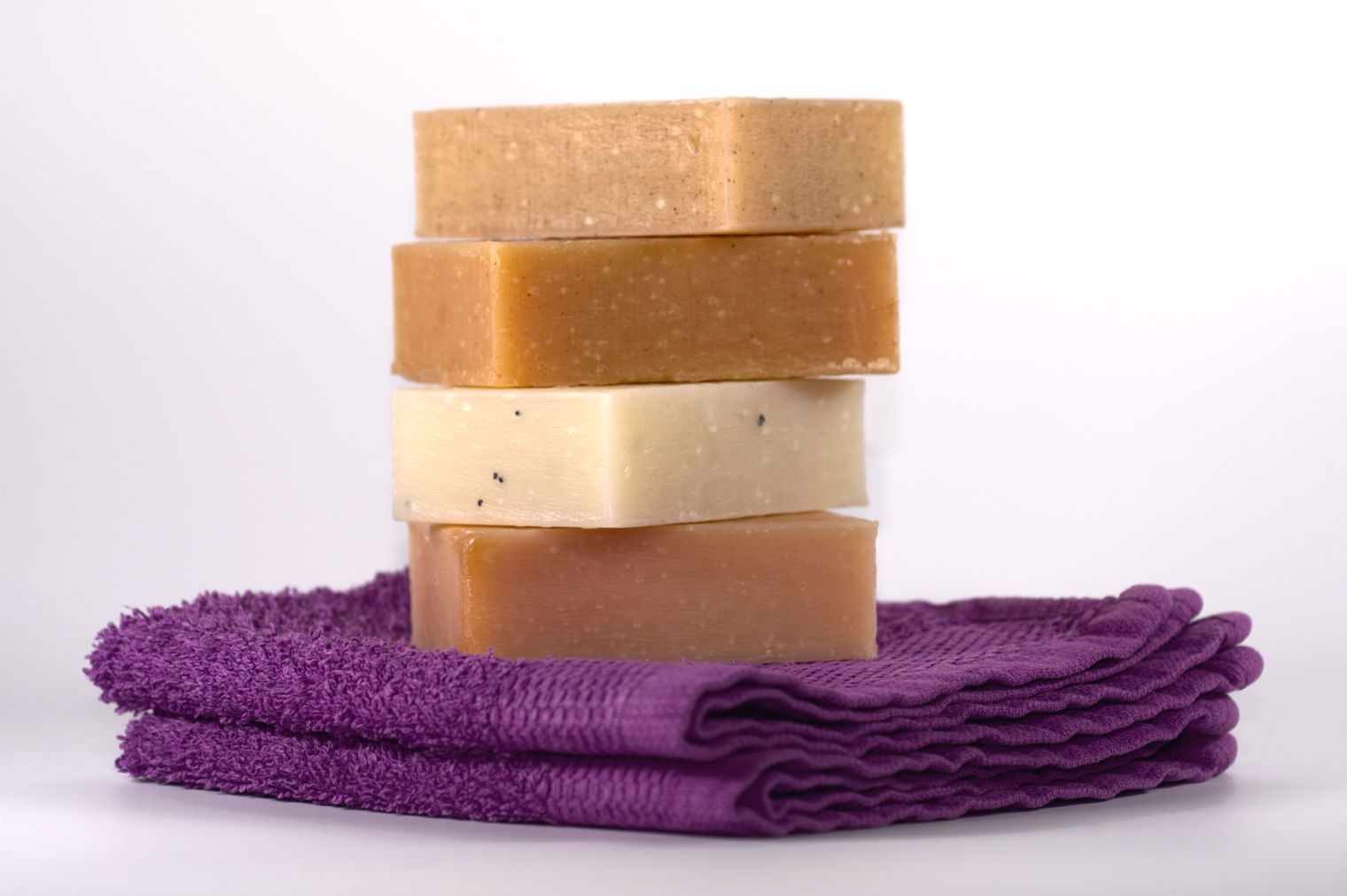Heart health is often a good barometer for overall health—and what you eat is one of the best ways to positively influence your heart and cardiovascular system. But what exactly does a heart-healthy diet look like? Terms like “low-fat” may come to mind, but as you’ll soon learn, that’s old-school thinking—it’s more about eating the right types of fat.
While everyone’s individual dietary needs are a little bit different, a heart-healthy diet is generally one that is rich in vegetables and fruits, and contains a variety of other minimally processed, nutrient-dense foods such as whole grains, nuts, seeds, legumes, fish, high-quality proteins, and healthy fats from sources like avocados and olive oil. (One way to achieve this dietary pattern is to follow a Mediterranean-style diet, which is simpler than you think.)
Using olive oil as your main cooking oil may be a particularly great way to support heart health, thanks to its high composition of oleic acid, which is a type of beneficial monounsaturated fat, and its polyphenol compounds such as hydroxytyrosol and oleocanthal, which are bioactive compounds with antioxidant and anti-inflammatory properties. In fact, the FDA says there’s good evidence to support the claim that consuming 1.5 tbsp of oleic acid-rich oils per day in place of saturated fats may actually reduce risk of coronary heart disease.
Here, we cover a few of the key ways olive oil positively influences heart and cardiovascular health, and why it deserves a spot in any heart-healthy pantry.
Olive oil helps lowers Inflammation
Acute inflammation is necessary for healing from injuries—since it increases blood flow to an area and brings necessary nutrients and immune cells along with it. But chronic inflammation is bad news. Chronic inflammation refers to a prolonged inflammatory response characterized by the simultaneous destruction and repair of tissues, and it’s at the root of nearly every chronic disease immangeable, including heart disease.
Specifically, chronic inflammation can irritate your blood vessels and promote the formation of dangerous arterial plaque, which can cause blood clots that lead to a heart attack or stroke.
The good news: Olive oil (especially extra virgin olive oil) is chock full of healthy compounds that help counteract chronic inflammation, including its monounsaturated fatty acids and polyphenols.
Monounsaturated fat-rich diets have been shown to reduce levels of C-reactive protein—a marker of chronic inflammation that may help predict risk of cardiovascular problems. Additionally, a polyphenol in olive oil called oleocanthal is highly anti-inflammatory and has been shown to inhibit the production of pro-inflammatory COX1 and COX2 enzymes in the body. Other polyphenols in olive oil, including hydroxytyrosol and oleuropein, have been found to exhibit anti-inflammatory properties, too.
Olive oil helps lower blood pressure
When the pressure of blood pushing against the walls of your arteries is too great, your blood pressure is considered high. High blood pressure usually develops over time and can occur due to unhealthy lifestyle habits, like not getting enough exercise or consuming a poor diet. If high blood pressure is left untreated, it can have a number of negative effects on the cardiovascular system, eventually leading to a heart attack, stroke, or even heart failure. That’s because high blood pressure can damage arteries and blood vessels throughout the body and brain, which can make them more likely to become blocked and even burst. High blood pressure also increases the workload on your heart, which causes the heart muscle to enlarge over time.
When coupled with an overall healthy diet and lifestyle, extra virgin olive oil can support healthy blood pressure. Remember how olive oil is an integral component of the Mediterranean diet? Well, a recent study found that older adults eating a Mediterranean diet for a year experienced, on average, a 5.5 mmHg drop in blood pressure. For men the results were even more impressive, with a drop of 9.2 mmHg. In another study, women with excess body fat who supplemented their breakfast with approximately 1.5 tablespoons of extra virgin olive oil experienced significantly greater weight loss and reduction in blood pressure than women consuming an equal amount of soybean oil.
Experts credit extra virgin olive oil’s high polyphenol content for this blood pressure-lowering effect, since further research has shown that higher polyphenol olive oil has a more beneficial effect on blood pressure than lower polyphenol olive oil. Previous studies have shown that polyphenols can help improve the function of the thin inner lining of blood vessels, called the endothelium, which is likely why EVOO has this beneficial effect.
Olive oil helps optimize cholesterol levels
Cholesterol is a waxy substance found in your blood. You need it to produce hormones and build healthy cells, but too much cholesterol from a poor diet or family history can up your risk for heart disease. This is because excess cholesterol in the bloodstream causes fatty deposits—or plaque—to build up in your blood vessels, which impairs blood flow and can sometimes lead to the formation of blood clots that may cause a heart attack or stroke.
Not all cholesterol is bad, though. HDL cholesterol (the “good” kind) actually helps rid your body of excess cholesterol so it doesn’t build up in blood vessels and arteries. LDL cholesterol (the “bad” kind), on the other hand, promotes the buildup of dangerous plaque.
The great news is that you can optimize your cholesterol levels with strategic dietary changes, including consuming more olive oil in the place of saturated fats and trans fats. Olive oil is predominantly composed of monounsaturated fats, and research has shown that monounsaturated fat-rich diets reduce total cholesterol and LDL cholesterol and increase HDL cholesterol. One reason why: Monounsaturated fats seem to increase the number of LDL receptors on the liver, thereby allowing more LDL cholesterol to be picked up and removed from the bloodstream.
Extra virgin olive oil’s polyphenols may play a role, too. Some studies have demonstrated that polyphenols help prevent LDL cholesterol from oxidizing into an even more harmful form of cholesterol called oxidized LDL, thanks to polyphenols’ antioxidant properties.
Olive oil helps prevent excessive blood clotting
Things like smoking, high cholesterol, high blood pressure, and diabetes can all contribute to the development of atherosclerosis—or a buildup of plaque in the arteries. Sometimes these plaques can rupture or cause blood flow to slow drastically, both of which can lead to the formation of a clot that blocks blood flow to the heart or brain, causing a heart attack or stroke.
Some studies suggest extra virgin olive may prevent platelet aggregation (that is, prevent platelets from clumping together), helping prevent clot formation. One animal study in particular found that consuming EVOO raised blood levels of something called apoA-IV, a component of HDL cholesterol that’s associated with reduced risk of cardiovascular disease and blood clotting within arteries. Polyphenols within extra virgin olive oil, including hydroxytyrosol, have also been shown to have anti-thrombotic properties, meaning they reduce platelet aggregation.
Olive oil is part of a heart-healthy diet
Clearly, olive oil (ideally extra virgin olive oil) deserves a spot in your heart-healthy diet. Need more convincing? People who live in the Mediterranean basin region (many of whom consume high levels of olive oil in their diets) tend to live longer and have fewer chronic diseases than people in the U.S., and following a Mediterranean diet has been associated with a significantly reduced risk of heart attack, stroke, and death from heart disease.
The good news: It’s incredibly easy (and delicious) to work more olive oil into your diet. Pro tip: For maximum heart-health benefit, use extra virgin olive oil in place of your other cooking fats such as butter or vegetable oil when possible.
Need some inspo? Here are a few ways to incorporate olive oil into your diet today:
- Drizzle a fragrant EVOO over warm grain dishes, roasted potatoes, fish, or chicken to truly unlock its flavor potential.
- Toss warm pasta with olive oil and garlic, and finish with a sprinkling of parmesan and fresh cracked pepper.
- Substitute butter or vegetable oil for extra virgin olive oil in baked goods (use these butter-to-olive oil conversions).
- Use olive oil in place of vegetable oil for stir-fries, roasted vegetables, pan-frying eggs, or even deep frying fish, chicken, or sweet potato fries.
- Make a quick and easy vinaigrette for your salads using EVOO. Simply pair it with a good balsamic vinegar or a squeeze of citrus.
- Created delicious infused olive oils that you can drizzle over hummus, soups, warm grain dishes, fish, and more.
- Dip crusty bread into olive oil (along with a bit of salt and some fresh or dried herbs) instead of slathering on butter.
Product placement
PJ KABOS 'Family Reserve Organic - Medium'
High Phenolic and 2022 Gold-Award Winner.
Declared as 'One of the World's Best Olive Oils'.
Click here to shop.





